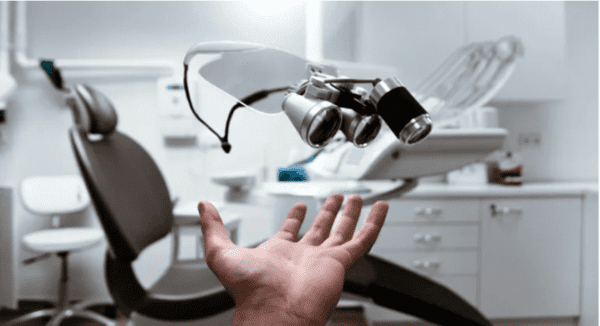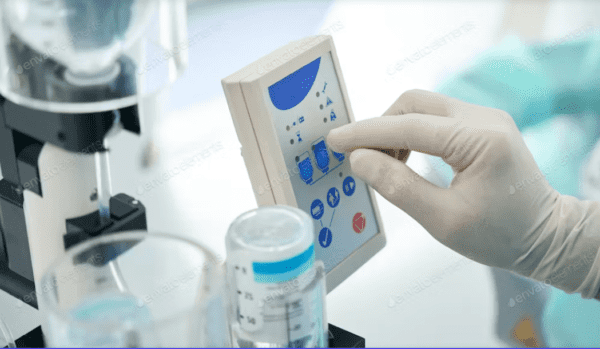Healthcare accelerators are programs designed to provide support and resources to healthcare innovators and entrepreneurs. These programs offer mentorship, networking opportunities, and access to funding to help startups grow and succeed. As the healthcare industry has undergone significant changes and new technologies have emerged, healthcare accelerators have become increasingly popular in recent years.
Accelerators typically offer a structured program lasting several weeks or months. During this time, startups receive guidance and support from experienced mentors. This guidance can include help with product development, marketing, and fundraising. Additionally, accelerators often provide access to investors and other industry professionals who can help startups make valuable connections and secure funding.
Overall, healthcare accelerators are an essential resource for entrepreneurs looking to break into the healthcare industry. These programs can help startups overcome common challenges and accelerate their growth by providing guidance, support, and funding. As the healthcare industry evolves, healthcare accelerators will likely continue to play an essential role in supporting innovation and driving progress.

Understanding Healthcare Accelerators
Definition and Purpose
Healthcare accelerators provide mentorship, networks, and investment opportunities to healthcare startups and innovators. They aim to accelerate the growth of healthcare startups by giving them the necessary resources and support to develop their ideas into viable businesses.
Healthcare accelerators aim to bridge the gap between startups and investors and connect startups with industry experts who can provide guidance and mentorship. By doing so, healthcare accelerators help startups overcome common challenges such as lack of funding, limited resources, and inadequate networks.
Benefits for Startups and Innovators
Healthcare accelerators offer several benefits to startups and innovators. Firstly, they provide access to a network of industry experts, mentors, and investors who can offer guidance and support. This network can help startups connect with potential customers, partners, and suppliers.
Secondly, healthcare accelerators provide startups with the necessary resources to develop their ideas into viable businesses. These resources may include funding, office space, legal and accounting services, specialized equipment and technology access.

Lastly, healthcare accelerators help startups overcome common challenges such as lack of experience, limited resources, and inadequate networks. Healthcare accelerators can help startups develop the skills and knowledge necessary to succeed in the healthcare industry by providing mentorship, guidance, and support.
Healthcare accelerators play an essential role in the healthcare industry by providing startups and innovators with the necessary resources and support to develop their ideas into viable businesses. By bridging the gap between startups and investors and connecting startups with industry experts, healthcare accelerators help startups overcome common challenges and accelerate their growth.
Key Players and Locations
Prominent Healthcare Accelerators
Healthcare accelerators are vital to the healthcare innovation ecosystem. They offer healthcare startups mentorship, funding, and other resources to help them grow and succeed. The most prominent healthcare accelerators include Healthbox, Matter, and Techstars.
Healthbox is an accelerator for digital health startups based in Chicago, with a national presence. It offers a four-month program that includes mentorship, funding, and access to a network of healthcare professionals.
Matter is a Chicago-based accelerator that targets healthcare startups developing innovative solutions to healthcare challenges. It emphasizes collaboration between startups and healthcare providers and offers a six-month program that includes mentorship, funding, and access to a network of healthcare professionals.
Techstars is a global accelerator that offers mentorship, funding, and other resources to startups in various industries, including healthcare. Techstars has a strong presence in San Francisco, New York City, and Los Angeles.

Geographic Hubs for Healthcare Innovation
In addition to prominent healthcare accelerators, geographic hubs for healthcare innovation exist. These hubs are locations where healthcare startups can connect with other startups, healthcare providers, and investors. The most notable geographic hubs for healthcare innovation include Cedars-Sinai in Los Angeles, Health Wildcatters in Dallas, and Miami.
Cedars-Sinai, a leading healthcare provider in Los Angeles, also operates an accelerator program. The Cedars-Sinai Accelerator offers healthcare startups mentorship, funding, and other resources. The accelerator has a strong focus on digital health startups.
Health Wildcatters is an accelerator that focuses on healthcare startups in Dallas. It offers a three-month program that includes mentorship, funding, and access to a network of healthcare professionals.
Miami is emerging as a hub for healthcare innovation, with a growing number of healthcare startups and investors in the area. The city strongly focuses on healthcare technology and has several accelerators and incubators that support healthcare startups.
Europe is also becoming a hub for healthcare innovation, with Berlin emerging as a critical location for healthcare startups. The city has a growing ecosystem of healthcare startups, investors, and accelerators.

Sector-Specific Acceleration
Healthcare accelerators offer startups a unique opportunity to access funding, mentorship, and resources to help market their products and services. While some accelerators take a broad approach, others focus on specific sectors within healthcare. This section will explore two industries: medical devices and biotechnology and digital health and software.
Medical Devices and Biotechnology
Medical device and biotechnology startups face unique challenges when developing and bringing products to market. These startups often require significant capital investment and specialized expertise to navigate the complex regulatory landscape. Fortunately, several healthcare accelerators focus specifically on these sectors.
One such accelerator is the Excedr Biotech Accelerator, which offers tailored resources for biotech startups. The program provides access to early-stage capital, hands-on mentorship, and industry-specific education to help founders refine their pitches, develop their business strategies, and analyze their markets and customers. Another notable accelerator is the MedTech Innovator Accelerator, which focuses on medical device startups. This program offers mentorship, funding opportunities, and access to a network of industry experts to help startups bring their products to market.

Digital Health and Software
Digital health and software startups are becoming increasingly popular as the healthcare industry continues to embrace technology. These startups offer innovative solutions for everything from patient engagement to clinical decision-making. Many healthcare accelerators focus specifically on digital health and software.
One such accelerator is the Healthbox Studio Accelerator, which offers a 16-week program for startups in the digital health space. The program provides access to mentorship, funding, and resources to help startups develop their products and bring them to market. Another notable accelerator is the Rock Health Accelerator, which focuses on digital health startups. This program offers mentorship, funding, and access to a network of industry experts to help startups grow their businesses.
Sector-specific acceleration offers healthcare startups a unique opportunity to access specialized resources and expertise. Whether a startup is focused on medical devices and biotechnology or digital health and software, several accelerators are available to help it grow and succeed.

Program Structure and Offerings
Healthcare accelerators are designed to provide startups with the necessary resources, mentorship, and funding to help them grow and succeed. These programs typically run for a set amount of time, ranging from a few months to a year, and offer various benefits to the participants.
Investment and Funding Opportunities
One of the main benefits of participating in a healthcare accelerator is the investment and funding opportunities that come with it. Most accelerators offer seed funding to the participants, usually in exchange for equity in the company. The amount of funding varies depending on the program, but it can range from a few thousand dollars to over $20,000.
In addition to seed funding, some accelerators provide access to venture funds and other investment opportunities. This can help startups secure additional financing to grow their business further.

Mentorship and Educational Resources
Another critical benefit of healthcare accelerators is the mentorship and educational resources available to the participants. Most programs have a network of experienced mentors and advisors who work closely with startups to provide guidance and support.
These mentors can offer valuable insights into the healthcare industry, help startups navigate the complex regulatory landscape, and advise on business strategy, product development, and fundraising.
In addition to mentorship, many accelerators offer educational resources such as workshops, seminars, and online courses. These resources can help startups develop the skills and knowledge they need to succeed in the healthcare industry.
Demo Day
At the end of the program, most accelerators host a demo day where the startups can showcase their products and services to potential investors and partners. This is an opportunity for the startups to pitch their business to a broader audience and secure additional funding.
Overall, healthcare accelerators offer startups a unique opportunity to grow and succeed in the healthcare industry. By providing investment, mentorship, and educational resources, these programs can help startups overcome the challenges of starting a business and achieve their goals.
Impact of Accelerators on Healthcare Industry
Accelerators are playing an increasingly important role in the healthcare industry. They offer a range of benefits to startups, healthcare organizations, and investors. In this section, we will explore the impact of accelerators on the healthcare industry.

Case Studies and Success Stories
Accelerators have been instrumental in the growth of many successful healthcare startups. One such example is the Grants4Apps accelerator, which has helped several startups develop innovative solutions in the healthcare industry. One of Grants4Apps’ success stories is a startup called MediKeep, which has developed a mobile app that helps patients manage their medications. MediKeep has raised over $1.5 million in funding and has been featured in several publications.
Another example is the Rock Health accelerator, which has helped several startups develop innovative solutions in the healthcare industry. One of Rock Health’s success stories is Omada Health’s startup, which has developed a digital health program that helps patients manage chronic diseases. Omada Health has raised over $200 million in funding and has been featured in several publications.

Future Trends in Healthcare Acceleration
The future of healthcare acceleration looks bright. There is a growing demand for innovative solutions to improve patient engagement, clinical outcomes, and healthcare industry operations. As a result, more healthcare organizations are launching accelerators to support startups in this space.
In addition, venture capital firms are investing heavily in healthcare accelerators. For example, the Innovation Fund, which several venture capital firms back, has invested in several healthcare accelerators, including Rock Health and Healthbox.
Overall, healthcare accelerators are critical in driving innovation in the healthcare industry. They offer a range of benefits to startups, healthcare organizations, and investors. As the demand for innovative solutions grows, we expect to see more healthcare accelerators emerge in the coming years.

Frequently Asked Questions

What services do healthcare accelerators typically offer to startups?
Healthcare accelerators typically offer a range of services to startups, including mentorship, networking opportunities, business development support, and access to funding. Additionally, many accelerators provide access to resources such as office space, legal and accounting services, and regulatory guidance.
How do healthcare accelerators contribute to innovation in the medical device industry?
Healthcare accelerators are critical in driving innovation in the medical device industry. They provide startups with the resources and support they need to develop and commercialize new technologies. By offering mentorship, funding, and access to industry experts, accelerators help startups overcome the challenges of bringing new medical devices to market.
What are the criteria for a startup to be accepted into a biotech accelerator program?
The criteria for acceptance into a biotech accelerator program vary depending on the specific program. However, most programs look for startups with innovative technologies, a strong business plan, and a talented team. Additionally, many programs require startups to be at a particular stage of development, such as having a working prototype or initial funding.
Can you list some top healthcare accelerators focusing on digital health?
Top healthcare accelerators focusing on digital health include Rock Health, StartUp Health, and Healthbox. These accelerators offer startups various services, including mentorship, funding, and access to industry experts.
How does participation in a healthcare accelerator differ from receiving seed funding?
Participation in a healthcare accelerator differs from receiving seed funding in several ways. While seed funding provides startups with capital to develop their technology, accelerators offer a range of additional resources, including mentorship, networking opportunities, and access to industry experts. Additionally, accelerators typically require startups to participate in a structured program with specific milestones and goals.
What are the success metrics for startups participating in healthcare accelerators like Rock Health or StartUp Health?
The success metrics for startups participating in healthcare accelerators like Rock Health or StartUp Health vary depending on the specific program. However, standard metrics include fundraising success, revenue growth, and successful product launches. Additionally, many accelerators track metrics related to the success of their mentorship and support programs, such as the number of partnerships formed or the number of patents filed by participating startups.
